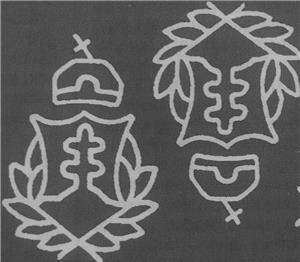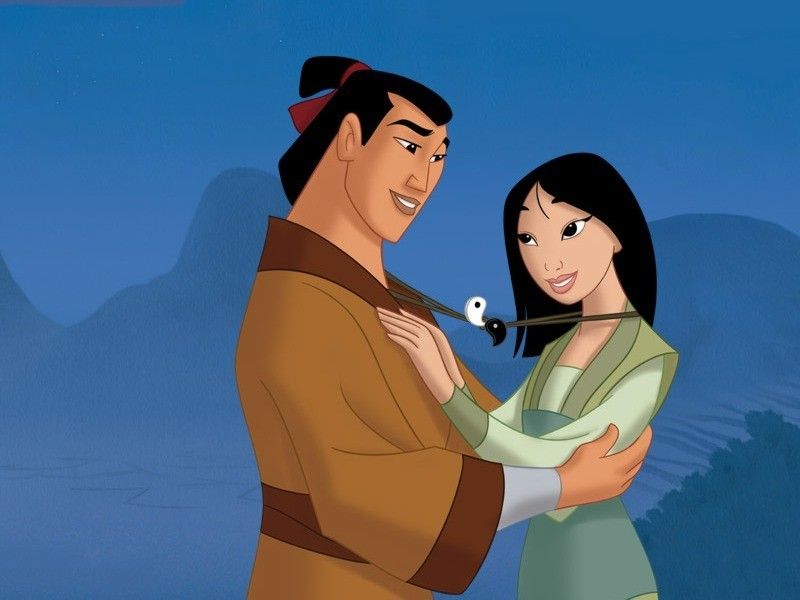Stamp: Ferenc II Rákóczi (1676-1735) (Hungary 1943)
Ferenc II Rákóczi (1676-1735) (Hungary 1943)
01 January (Hungary ) within release Characters and Relics of Hungarian History goes into circulation Stamp Ferenc II Rákóczi (1676-1735) face value 8 Hungarian fillér
| Stamp Ferenc II Rákóczi (1676-1735) in catalogues | |
|---|---|
| Philatelia Hungarica Catalog: | PHu: HU 749V/A2 |
Stamp is vertical format.
Also in the issue Characters and Relics of Hungarian History:
- Stamp - Artúr Görgey (1818-1916) Honvéd general face value 12;
- Stamp - Artúr Görgey (1818-1916) Honvéd general face value 12;
- Stamp - Count András Hadik (1710-1790) field marshal face value 10;
- Stamp - Count András Hadik (1710-1790) field marshal face value 10;
- Stamp - Count Miklós Zrínyi (1508-1566) face value 6;
- Stamp - Count Miklós Zrínyi (1508-1566) face value 6;
- Stamp - Crown of St. Stephen face value 1;
- Stamp - Crown of St. Stephen face value 1;
- Stamp - Crown of St. Stephen face value 20;
- Stamp - Crown of St. Stephen face value 20;
- Stamp - Ferenc II Rákóczi (1676-1735) face value 8;
- Stamp - Ferenc II Rákóczi (1676-1735) face value 8;
- Stamp - János Hunyadi (1385-1456) face value 4;
- Stamp - János Hunyadi (1385-1456) face value 4;
- Stamp - Miklós Toldi, 14th Century Hero face value 3;
- Stamp - Miklós Toldi, 14th Century Hero face value 3;
- Stamp - Pál Kinizsi (-1494) face value 5;
- Stamp - Pál Kinizsi (-1494) face value 5;
- Stamp - Ruling Prince Árpád (c. 850-907) face value 1;
- Stamp - Ruling Prince Árpád (c. 850-907) face value 1;
- Stamp - Saint László I (1040-1095) King of Hungary face value 2;
- Stamp - Saint László I (1040-1095) King of Hungary face value 2;
- Stamp - Virgin Mary, Patroness of Hungary face value 18;
- Stamp - Virgin Mary, Patroness of Hungary face value 18;
- Stamp - Virgin Mary, Patroness of Hungary face value 24;
- Stamp - Virgin Mary, Patroness of Hungary face value 24;
Stamp Ferenc II Rákóczi (1676-1735) it reflects the thematic directions:
Famous People refers to the fame and public attention accorded by the mass media to individuals or groups or, occasionally, animals, but is usually applied to the persons or groups of people (celebrity couples, families, etc.) themselves who receive such a status of fame and attention. Celebrity status is often associated with wealth (commonly referred to as fame and fortune), while fame often provides opportunities to make money.
A freedom fighter is a person engaged in a resistance movement against what they believe to be an oppressive and illegitimate government.
A general officer is an officer of high rank in the armies, and in some nations' air and space forces, marines or naval infantry
The horse (Equus ferus caballus) is one of two extant subspecies of Equus ferus. It is an odd-toed ungulate mammal belonging to the taxonomic family Equidae. The horse has evolved over the past 45 to 55 million years from a small multi-toed creature, Eohippus, into the large, single-toed animal of today. Humans began to domesticate horses around 4000 BC, and their domestication is believed to have been widespread by 3000 BC. Horses in the subspecies caballus are domesticated, although some domesticated populations live in the wild as feral horses. These feral populations are not true wild horses, as this term is used to describe horses that have never been domesticated, such as the endangered Przewalski's horse, a separate subspecies, and the only remaining true wild horse. There is an extensive, specialized vocabulary used to describe equine-related concepts, covering everything from anatomy to life stages, size, colors, markings, breeds, locomotion, and behavior.
A prince is a male ruler (ranked below a king, grand prince, and grand duke) or a male member of a monarch's or former monarch's family. Prince is also a title of nobility (often highest), often hereditary, in some European states. The female equivalent is a princess. The English word derives, via the French word prince, from the Latin noun prīnceps, from primus (first) and caput (head), meaning "the first, foremost, the chief, most distinguished, noble ruler, prince"



